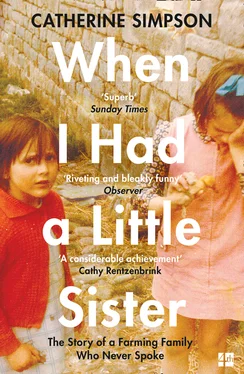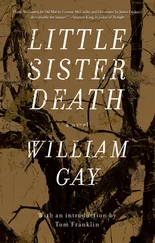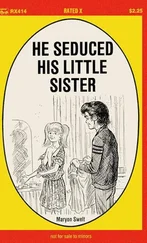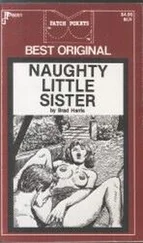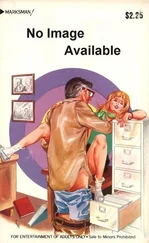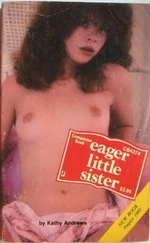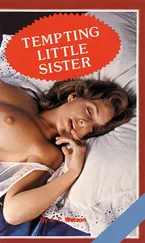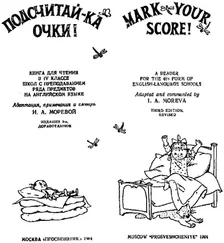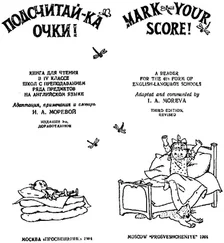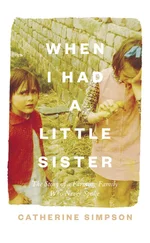When I was six or seven she was very old and dying and she came to stay for a few weeks with Grandma Mary. Mum and I went upstairs to take her a bowl of prunes on a tray. The air hung heavy in the bedroom where Great-Great-Aunt Alice was a small hump under the bobbly candlewick counterpane. Her little grey head turned as we entered.
She struggled to get her tiny shoulders up onto the pillow so she could taste the prunes in their sticky brown juice. The spoon shook in her hand and clacked against the rim of the bowl and dribbles of juice trickled down her chin. In a loud and forced-cheery voice Mum said, ‘We’ve come to have a look at you,’ which was the usual greeting in our family, but Great-Great-Aunt Alice said nothing; all her fading energy was concentrated on getting the prunes onto the spoon and up into her toothless mouth.
Being so infirm, taking so much effort to raise a spoon to your mouth, and to suck and to swallow, to not be able to talk, to want to eat prunes at all – this looked to me like somewhere between life and death, but nearer to death.
A week or two later we went to Grandma Mary’s for the usual Sunday afternoon visit and Great-Great-Aunt Alice was nowhere to be seen. Instead there were Great-Great-Aunt Alice’s things; boxes and boxes of shoes and handbags and petticoats, so many things that the big farmhouse kitchen was like a jumble sale. I particularly remember the petticoats in satin and silk and watching Tricia and Cousin Elaine clop past wearing one each, lifting them up like Cinderella’s ball gowns as they clattered and wobbled by in Great-Great-Aunt Alice’s shoes. There was a reek of mothballs.
One of my uncles held up a great pair of white bloomers and said, ‘Run them up a flagpole and folks’ll know you’ve surrendered,’ and everybody laughed.
We poked through drawers that had been removed from chests and dressing tables, which must have been brought from Great-Great-Aunt Alice’s bungalow after her death and dumped on Grandma Mary’s kitchen table. They were filled with the usual stuff that accumulates in drawers: dried-out pens, purses with the odd sixpence inside, bottles gummed up with the residue of sticky yellow cologne, tickets for long-forgotten trips, postcards from long-lost friends. In the grime in the corner of one drawer an aunt found a garnet and seed-pearl ring and trilled, ‘Is it finders keepers?’ Grandma, who was standing at the kitchen unit slicing boiled eggs for tea with a plastic and wire contraption, didn’t look round and said, ‘Take what you want.’
I left with a bracelet of coloured stones and an evening bag all silky inside and infused with a lingering scent of a long-ago perfume. I was delighted to own such glamorous things, and, as both the bracelet and the bag were considered rubbish by my mother, I was at liberty to drag them around the farmyard with me until both the bag and the bracelet were broken and lost.
Many years after the disposal of my Great-Great-Aunt’s things I read Mrs Gaskell’s Cranford . In it Miss Matty burns her parents’ love letters.
‘We must burn them, I think,’ said Miss Matty, looking doubtfully at me. ‘No one will care for them when I am gone.’ And one by one she dropped them into the middle of the fire, watching each blaze up, die out, and rise away, in faint, white, ghostly semblance, up the chimney, before she gave another to the same fate.
I ask myself now: is it possible to dispose of a person’s effects with dignity?
Some months after writing this I discussed these memories with my Cousin Mary. She remembered all the stories of Great-Great-Aunt Alice; yes, she did indeed buy her husband a one-way ticket to Australia, writing ‘liar, thief and all that is bad’ on the back of his remaining photograph. And yes she was a suffragette and made money in stocks and shares and in business, and tried to keep warm by putting the electric fire on the bed – and she did set the bed on fire. But here my memory proved faulty. The bed-fire had in fact killed Great-Great-Aunt Alice after a short hospital stay. So who was the tiny grey-haired lady eating prunes whose stuff we had shared out? It turned out to be another unmarried, childless great-great-aunt called Annie. And this underlined for me that after death not only do we disappear and our belongings become scattered, but our stories begin to blend with the stories of others and meld and shapeshift like a flock of murmurating starlings.
A few years after Great-Great-Aunt Alice (or, as it now seems, Annie) died, my Great-Aunty Margaret died too, also leaving no children, so the contents of her seaside bungalow went up for public auction. I had moved away by then and didn’t go and afterwards I asked Mum what had happened to Great-Aunty Margaret’s most prized possession – her silver epergne, an elaborate candelabra centrepiece that she displayed on her sideboard, proudly telling everyone it had once belonged to Rochdale Town Hall. My mother said, ‘She’d polished it so much she’d worn the silver plate off.’ She shrugged. ‘Somebody must have bought it, I suppose.’
Great-Aunty Margaret suffered from dementia and as it progressed she told us the same stories over and over again. The one she recounted most often was how she got up on her twelfth birthday to be told she was never returning to school and there was a job waiting for her in a Rochdale cotton mill. ‘I did cry,’ she repeated. ‘Oh, I did cry.’ She spent the last months of her life in a home. Her upright piano, and the sheet music for ‘I’m Forever Blowing Bubbles’ and ‘I Wonder Who’s Kissing Her Now’, went to the home with her in the hope she would play for the other residents. On arrival she declared she had never set eyes on that piano before and it most certainly was not hers. She never touched it again.
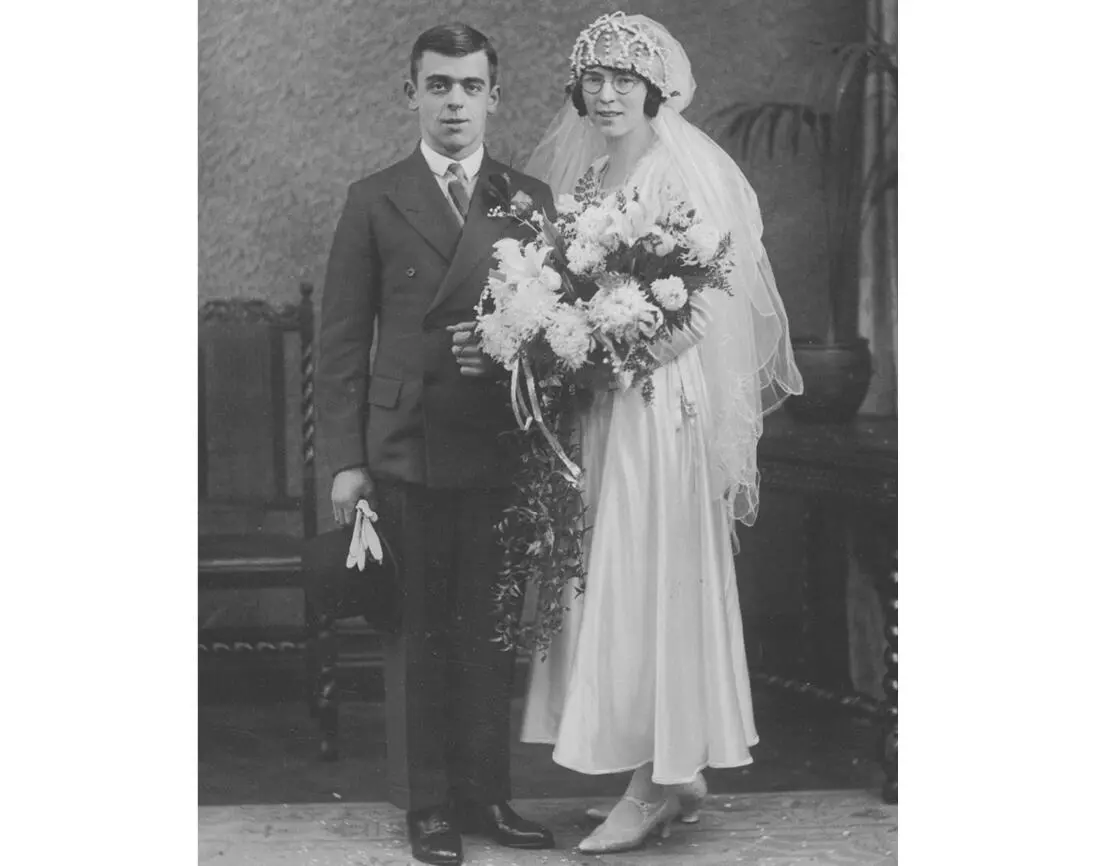
Great Aunty Margaret left school at 12 to work in the cotton mill
Some of Great-Aunty Margaret’s more personal effects, which in her handwritten, home-made will she had earmarked for particular old friends, were brought to our farm in a black bin liner for my mother to distribute. They included her fur three-quarter-length, her astrakhan coat and her engagement ring – a small flower set with diamonds.
My mother dumped the bag in Gran’s Dairy – I don’t know why, the farmhouse was big enough for umpteen bin bags – and my father mistakenly, but inevitably, dragged it out for the bin men. Within days it was flung in the dustcart and that was the end of Great-Aunty Margaret’s legacy. Mum and Dad made a mad dash to the council tip at Fleetwood to try to retrieve the bag of Great-Aunty Margaret’s treasures but arrived to find a sea of similar black plastic bags stretching to the horizon and realized the furs and diamonds were gone for ever.
As a young woman Great-Aunty Margaret had wanted a family. There was a story that she once thought she was having a baby. She got fat. She made preparations. Unfortunately she stayed pregnant for more than nine months, at which point the phantom baby faded away.
We emptied the farmhouse over many weekends during spring and summer, 2014.
It was filthy, dusty work. I dug through the dead weight of Tricia’s vinyl records and found a Roy Wood album from forty years ago and played it at full blast. ‘Look Thru the Eyes of a Fool’ crackled and slurred and jumped and blurred under the blunt needle and vibrated the stagnant air in the house just a little. As fire was cleansing, so was noise.
I found a load of washing Tricia had done months before still in the machine mouldy and rotting and loaded it straight into a bin bag.
Читать дальше
